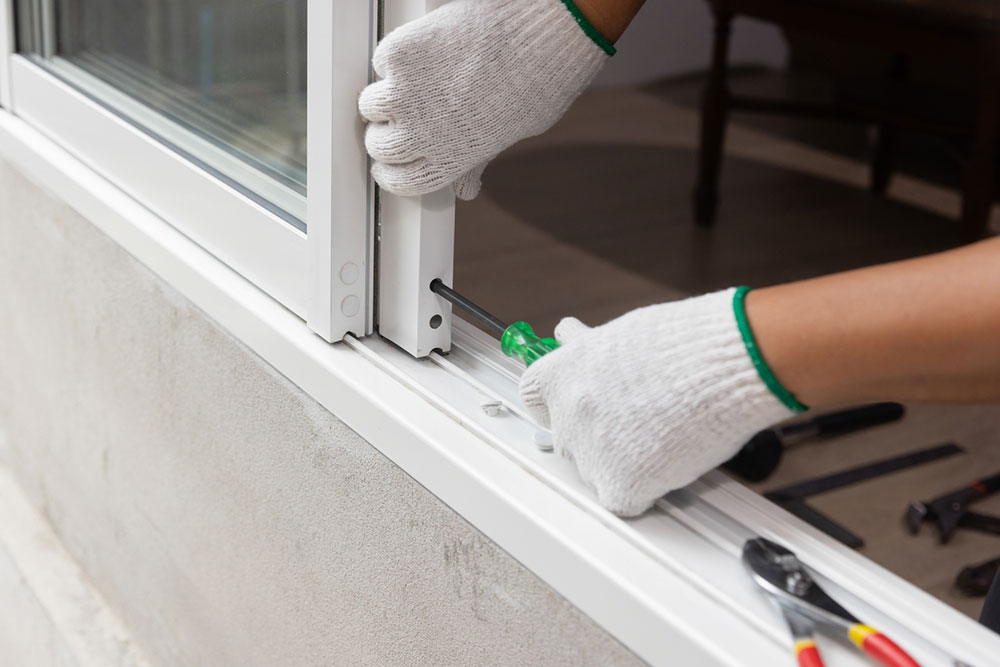8 window and door maintenance mistakes to avoid

The doors and windows of a house are considered to be its most integral components. Keeping them in good shape is imperative to ensure the safety and well-being of the residents. It is crucial to avoid making mistakes to keep the doors and windows in good condition. Whether to protect their form or function, one must avoid certain pitfalls, such as the following, to properly maintain their doors and windows.
Not cleaning regularly
Many individuals often overlook the need to clean their doors and windows regularly. These pieces accumulate substantial dirt, dust, and debris daily. If left uncleaned, the dirt can begin damaging the surfaces of doors and windows. It can also significantly damage the glass surfaces of windows by causing scratches. This is why it is essential to regularly clean the doors and windows with a soft cloth and mild cleansers. One must also ensure that the frames and hinges of the doors and windows are cleaned. If too much dirt accumulates in the rollers or hinges, it could lead to windows and doors not operating properly.
Using the wrong cleaning products
To maintain doors and windows perfectly, using the right products for cleaning is essential. Using abrasive cleaners or harsh chemicals might end up causing more damage to the surface of the doors and windows. So, one must use gentle, ammonia-free cleaning products for these surfaces. Besides, one must avoid using harsh cleaning tools like scrubbers or sponges. Instead, one can use softer materials, such as microfiber cloths, to clean their doors and windows.
Failing to lubricate hinges and rollers
Regular door and window maintenance is vital to keep them in good working order. In addition to cleaning, lubrication is also necessary for smooth operation. Moving parts such as hinges and rollers must be lubricated regularly to prevent various issues. Failure to do so can increase friction between these components, making it harder to open or close the doors and windows. This can also lead to an irritating noise whenever the doors and windows are used. To prevent this, it is recommended to lubricate all moving parts of doors and windows with a silicone or oil-based lubricant as part of their routine maintenance.
Ignoring cracks and crevices
It’s essential to pay attention to any cracks or gaps that may appear in doors or windows. If left unattended, they could result in air and water leaks, which could lead to mold and mildew. Additionally, water leaks and moisture can cause the wooden frames of the doors and windows to rot over time. When cleaning, it’s essential to be thorough and look for cracks or gaps. If one notices any, it’s crucial to quickly seal them with caulk or weatherstripping to prevent further damage. By doing so, one can ensure that the doors and windows remain in good condition.
Overlooking damaged frames
The condition of doors and window frames can be affected by varying weather conditions, causing them to expand or contract. Even a subtle change in their shape can have an impact on the utility bills of the residents. If the frames become deformed, it may result in the inability to close the door or window properly, leading to increased energy consumption by the heater in cold weather and the air conditioning in hot weather. This, in turn, can lead to higher energy bills for the occupants. Therefore, inspecting the frames of doors and windows regularly and repairing any deformations as soon as possible is advisable.
Not checking the locks regularly
It is important to keep the house safe and secure by using locks on doors and windows. However, over time, locks can become damaged or lose their effectiveness. Therefore, inspecting the locks to ensure they are working correctly is advisable. If any issues are noticed, such as a flimsy or damaged lock or frequent sticking, it is recommended to repair or replace the lock immediately. Regular lubrication of the locks is also necessary to ensure smooth operation and extend lifespan. Following these simple steps ensures one’s home remains secure and protected from potential threats.
Applying pressure while opening or closing
It is a common tendency for people to use excessive force to operate windows or doors that feel hard to open or close. However, this can have a detrimental effect, damaging the frame, hinges, and locks. Ignoring the underlying issue and continuing to use force can exacerbate the problem. Therefore, it is crucial to inspect the issue and address it promptly. By doing so, you can ensure that the windows and doors function properly and avoid costly repairs in the long run.
Skimping on repairs
If one does find significant issues with their doors or windows, it is not ideal to delay its repairs. If one finds it hard to repair themselves, it is best to hire a professional immediately. Delaying or neglecting these repairs will only increase the chances of worsening damages. Moreover, when hiring a contractor, one must do some research. One must avoid hiring the first option that comes to mind and not pick services just because they are inexpensive. One must read online reviews and take word-of-mouth recommendations to avoid hiring an incompetent or inexperienced professional.



